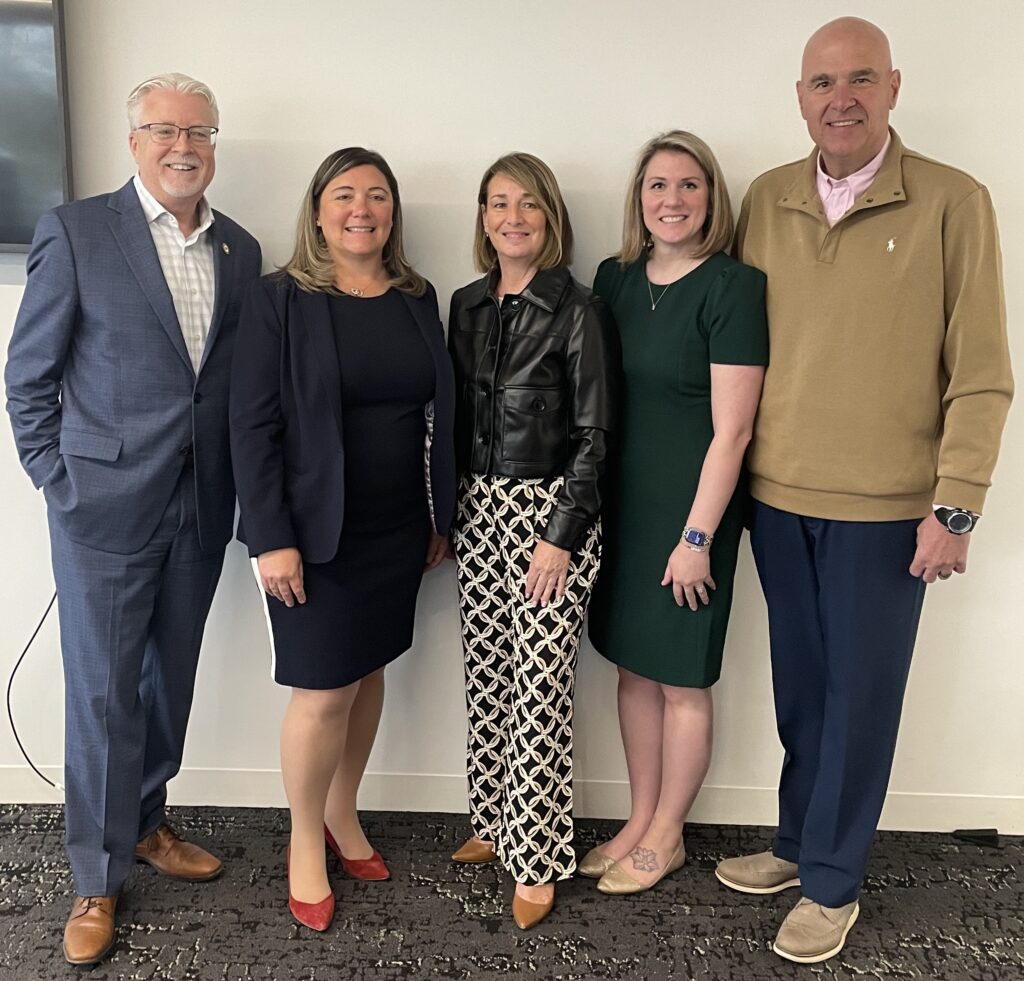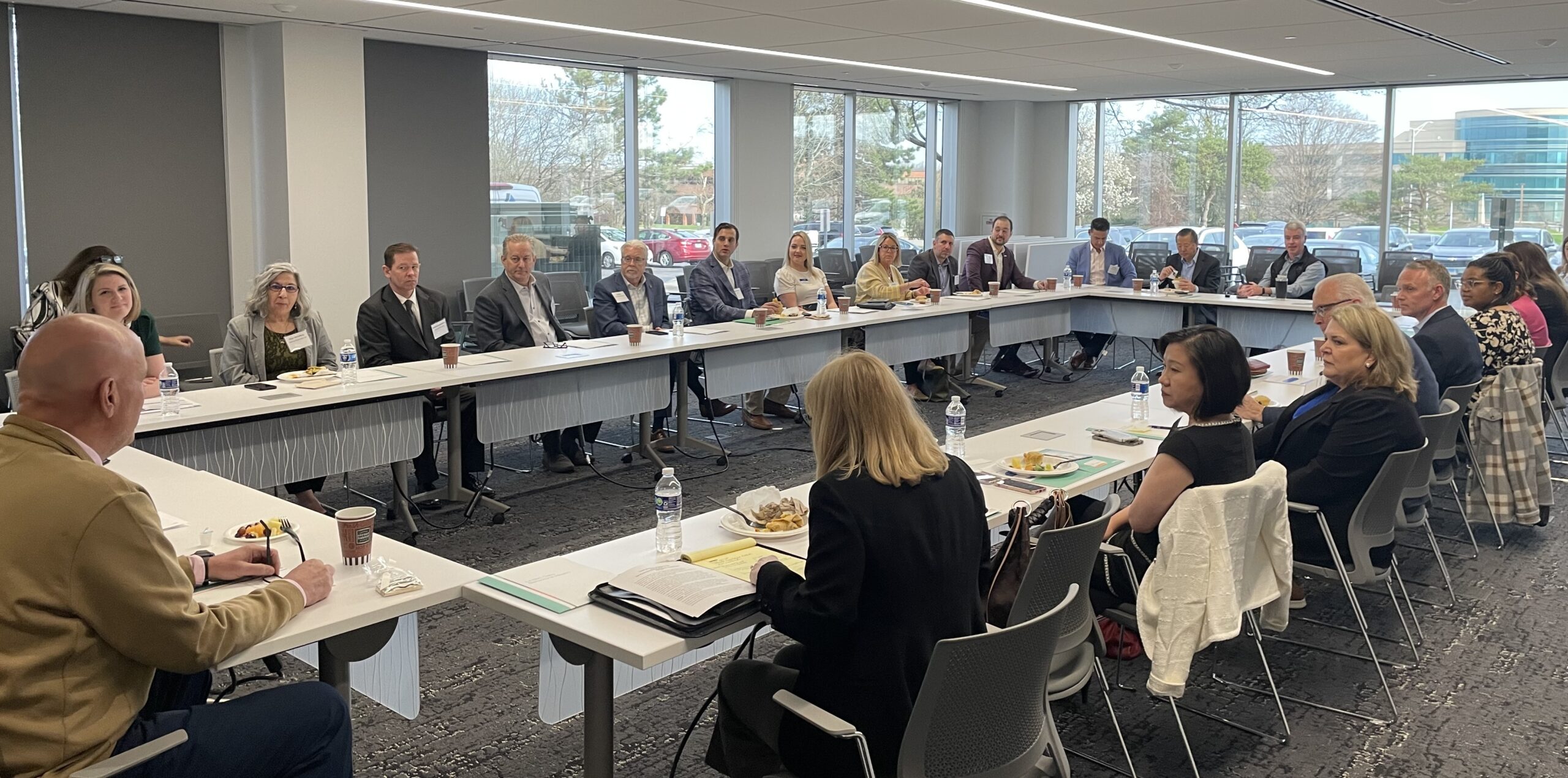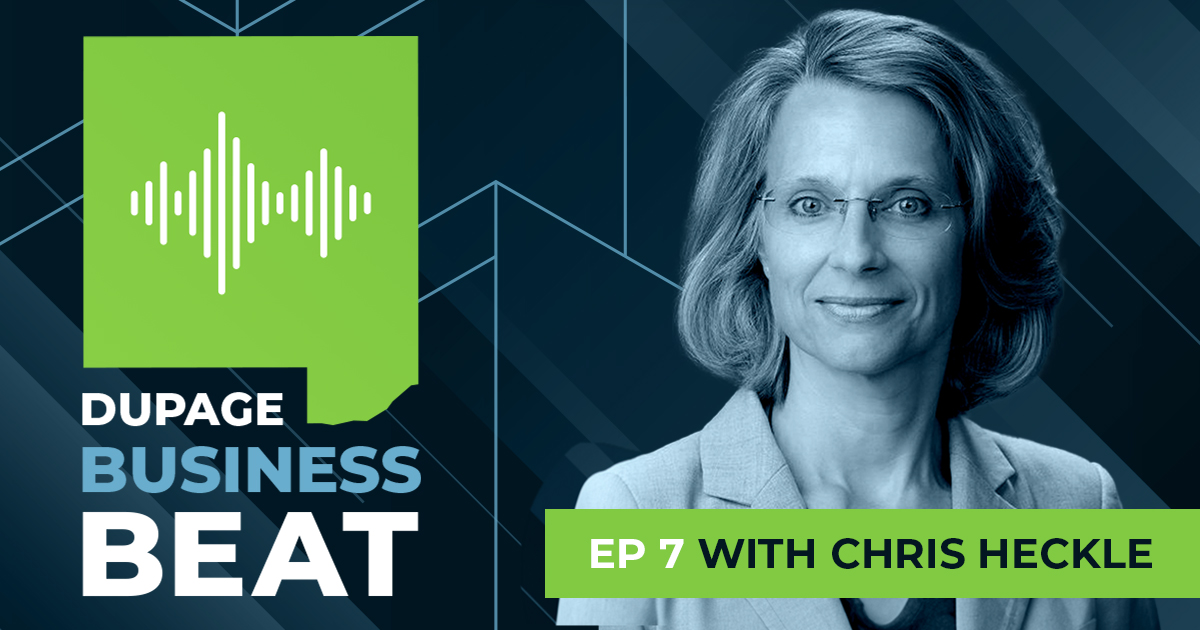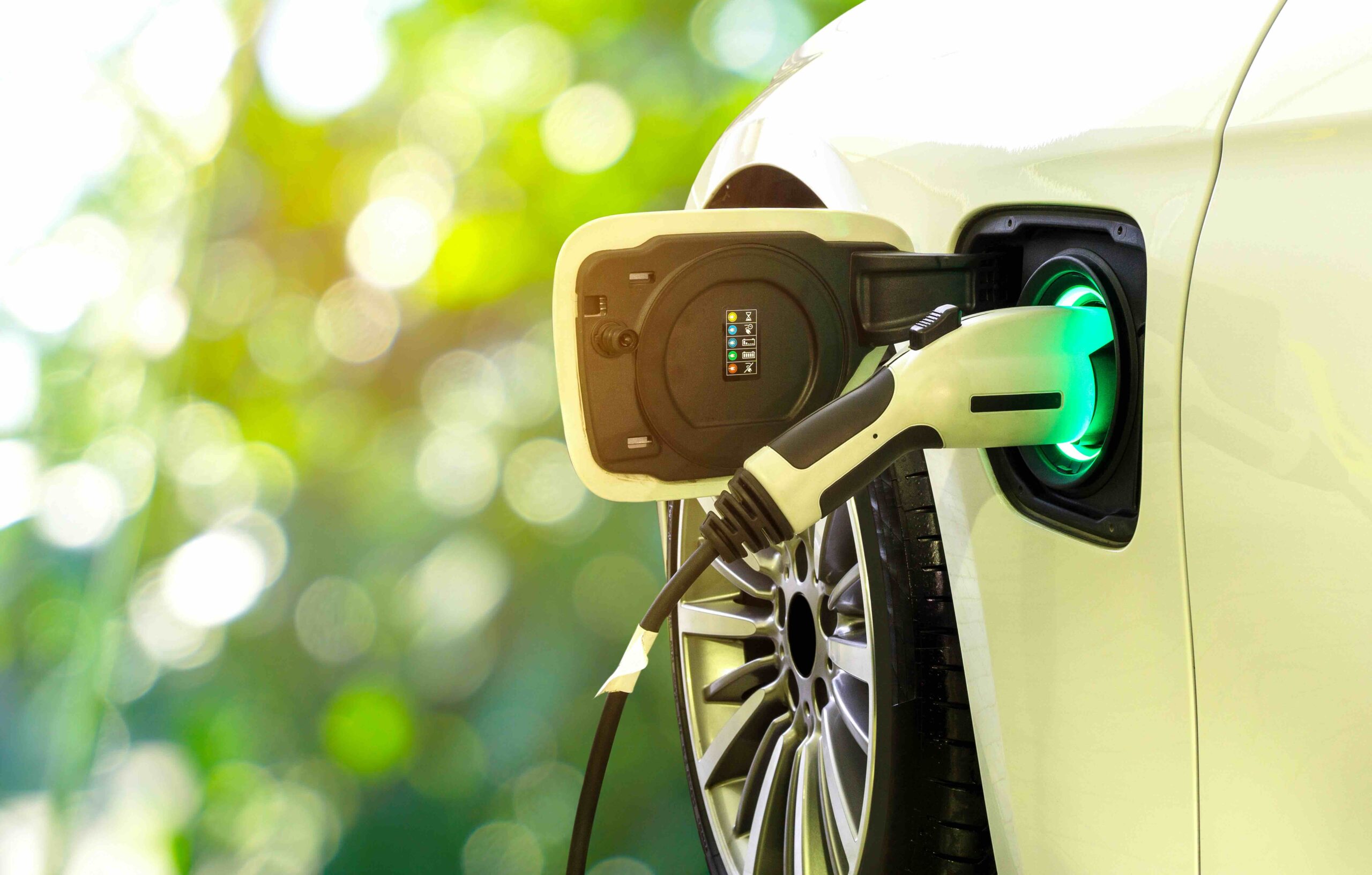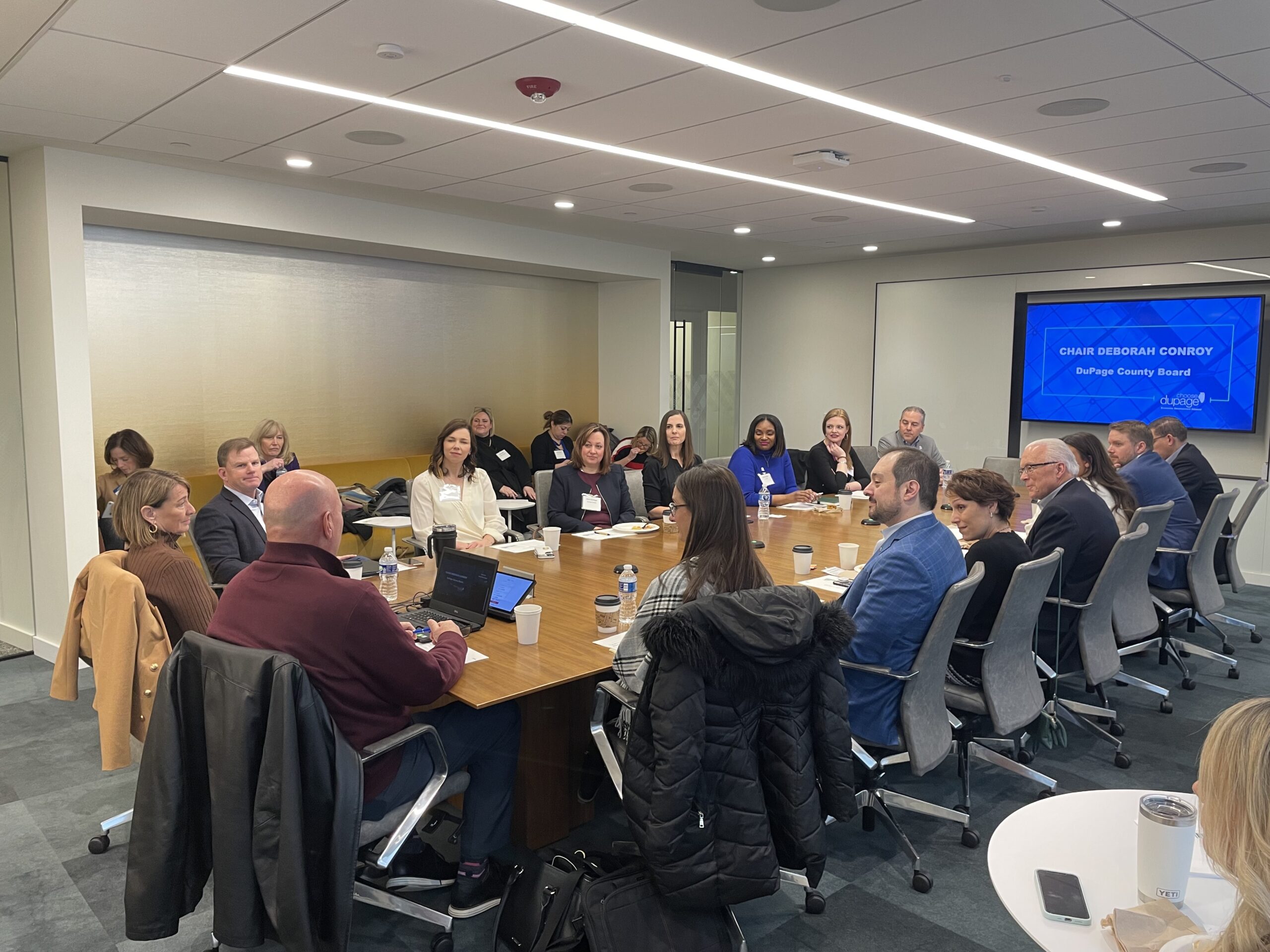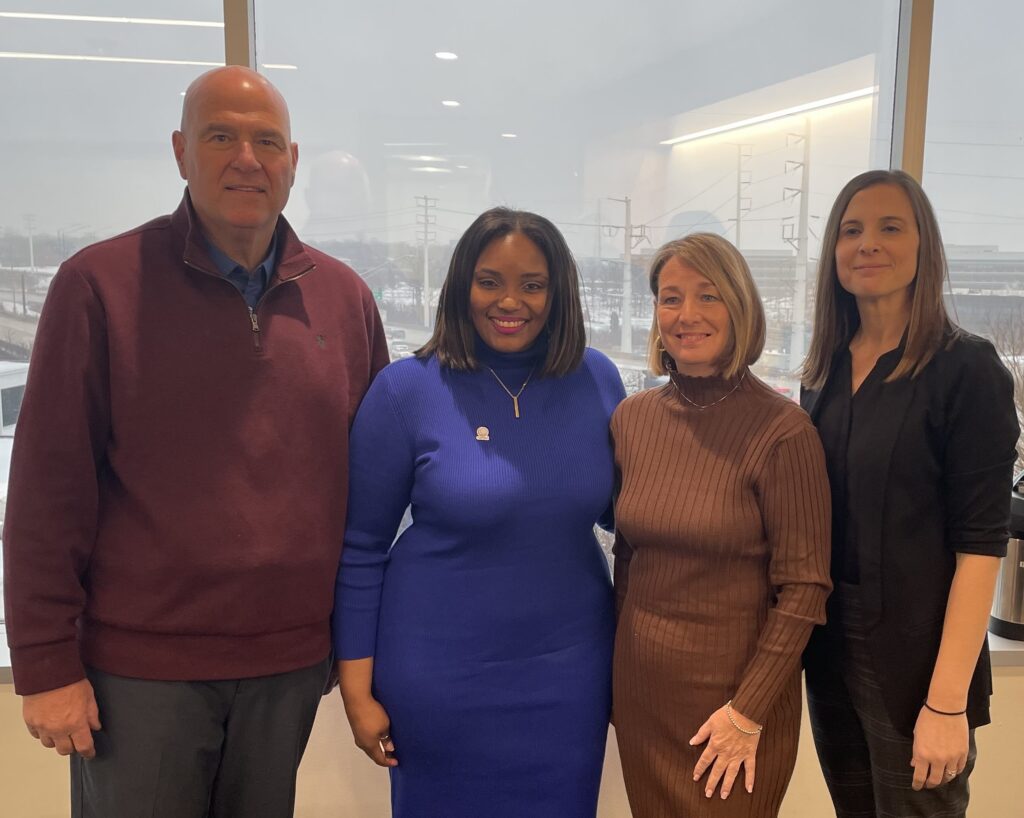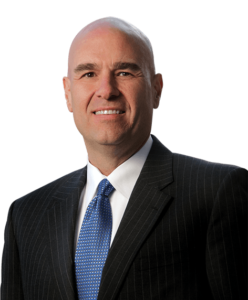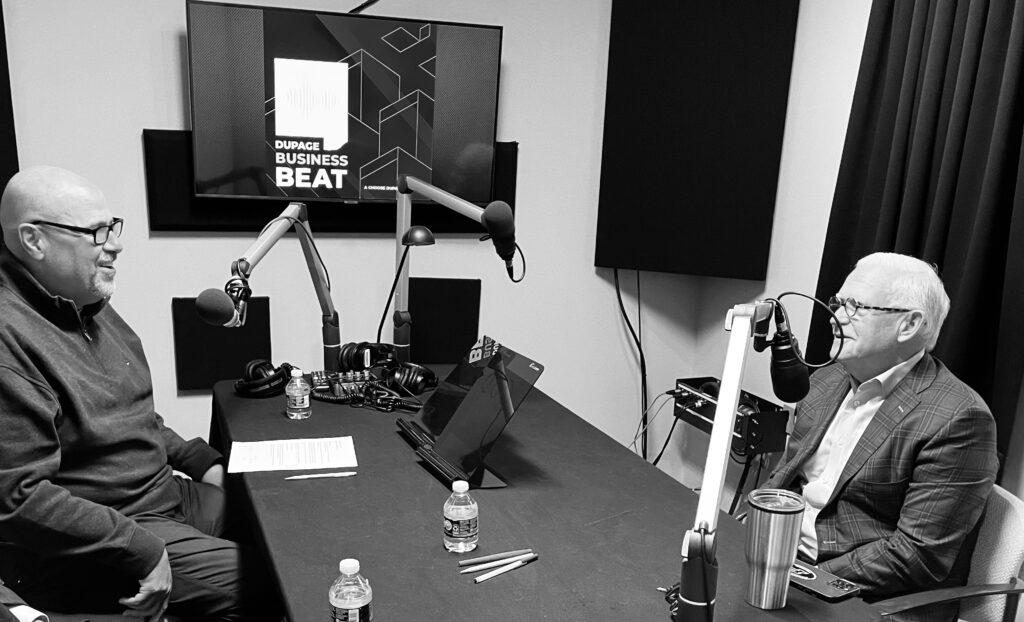ComEd launching $87 million in new rebates to incentivize expansion of electric vehicle charging, bring greater access to zero-emissions vehicles for communities throughout the region
CHICAGO (February 8, 2024) – As part of a larger investment to accelerate an equitable adoption of electric vehicles (EVs) in northern Illinois, ComEd is launching two new business and public sector EV rebate programs. New programs will provide a total of $87 million this year to help reduce upfront costs of all-electric commercial and public sector fleet vehicle purchases and incentivize the buildout of more business and public charging across the region.
ComEd today joined a diverse mix of environmental, community, industry, and municipal stakeholders in announcing its newest EV rebates from the annual Chicago Auto Show, held at McCormick Place. The two new EV rebate programs will begin accepting applications on February 15, 2024, with funds awarded on a first come, first served basis. New EV rebates for businesses and public sector customers follows the recent launch of the EV Charger and Installation Rebate Program for residential customers, for which customer can apply for by visiting ComEd.com/Clean.
“Working with our partners in northern Illinois, ComEd is committed to helping customers benefit from zero emissions vehicles, which can significantly reduce pollution and enhance air quality for all residents across our communities,” said Erica Borggren, ComEd Vice President of Customer Solutions. “Through new targeted incentives, we are aiming to accelerate the transition toward all-electric fleets, cars, buses, and trucks, while at the same time catalyzing the buildout of a regional network of public EV charging to serve more customers – a key factor to growing EV adoption equitably.”
New programs launching in 2024 include a total of $87 million for business and public sector EV initiatives. This year, $57 million in rebates will be available for business and public sector EV purchases, and $30 million in rebates are available to support electrical infrastructure “make ready” upgrades needed for the installation of publicly available Level 2 and Level 3 charging stations. Level 2 chargers can charge an EV battery 6 to 8 times faster than charging from a wall outlet, often referred to as a Level 1 charger. Level 3 chargers, often referred to as Direct Current Fast Charging (DCFC) can charge a typical EV battery in less than one hour.
More than half of all rebate funding is reserved to help boost EV investment in equity-eligible communities, and with higher levels of rebates reserved for customers located in, driving, or doing business in low-income and equity-eligible communities. 2
“Under Governor Pritzker’s leadership, the state of Illinois is leading an EV revolution, delivering incentives and enabling significant expansion of our EV charging network so more residents can take advantage of environmental and air quality benefits of zero emissions vehicles,” said Megha Lakhchaura, EV Officer for the state of Illinois. “ComEd’s new EV programs complement state and federal incentives designed to boost EV adoption and charging buildout on a larger scale. This means more school districts, transit agencies, local governments and small and large businesses and their surrounding communities can access the benefits of EVs.”
Specifically, funding amounts and eligibility for the two new ComEd rebate programs for business and public sector customers to support large-scale EV adoption are as follows:
- A total of $57M is available in 2024 for EV Purchase Rebates
Rebates between $5,000-$180,000 each, with funding not to exceed the cost of the vehicle. This includes funding for light duty, medium duty, and heavy-duty fleet vehicles, transit buses, and K-12 school buses. The rebate can also be applied retroactively in some cases; ComEd will accept applications for vehicles purchased as far back as June 1, 2023.
- A total of $30M is available in 2024 for Make-Ready Electrical Infrastructure Rebates
Rebates of up to $8,000 per Level 2 EV charger plug or port (with a 10-port maximum) or up to $1,000 per kW for infrastructure serving Level 3 chargers with a minimum of 50kW (maximum rebate of $500,000). Rebates can cover project make-ready costs including, but not limited to, contractor labor, conduits, cable, fasteners and breakers. Rebates will not cover the cost of the physical charger. This rebate can also be applied retroactively in some cases; ComEd will accept applications for qualifying projects completed as far back as June 1, 2023.
New investments to accelerate EV adoption in the region complement statewide plans to boost EV adoption in Illinois – a key focus as part of the state’s Climate and Equitable Jobs Act (CEJA), which sets a goal of putting 1 million EVs on state roads by 2030. EV ownership has increased in recent years, with 80,000 vehicles driving in northern Illinois today, up from just 17,000 in 2019. ComEd programs build on state and federal programs designed to reduce upfront costs to vehicle purchase, and to reduce range anxiety through the expansion of a network of charging serving more communities.
The new rebate programs announced today are geared toward business and public sector customers, including:
- Those who are considering electrifying their fleet to improve their environmental footprint while reducing their fuel and operating costs.
- Those who are looking to offer charging access to their customers and communities.
The programs will accept applications from a broad range of business and public sector customers, including small and large businesses, local government, school districts, and transit authorities.
“ComEd’s investments to expand EV adoption will support our regional efforts to address climate change and enhance air quality by reducing tailpipe emissions,” said Kevin Burns, Metropolitan Mayors Caucus Chairman of the Executive Board, Environmental Committee and Energy Subcommittee. “New rebate programs from ComEd will 3
complement the work our local governments are doing to develop infrastructure, policy and to lay the framework for an equitable EV future here in northern Illinois.”
“With dangerous air pollution still a regional challenge and with the burdens of asthma weighing more heavily on lower income communities, this new EV program will help reduce air pollution from the largest source in northern Illinois and make owning a clean, zero-emission vehicle more affordable precisely where they can provide the greatest health benefits,” said Brian Urbaszewski, Director of Environmental Health Programs at Respiratory Health Association.
EVs provide numerous benefits for customers. Not only do they offer fuel and maintenance cost savings and performance benefits, but communities can experience broad environmental improvements from reduced tailpipe emissions. Additionally, electrifying transportation—including cars, trucks, school buses and public transit fleets—can create tangible health benefits for all communities and families across northern Illinois, especially communities which have traditionally borne the brunt of climate change and air pollution.
“The Environmental Law & Policy Center is especially encouraged that school districts can get ComEd assistance with electric school buses and charging equipment,” said Susan Mudd, Senior Policy Advocate at the Environmental Law & Policy Center. “This is an equity issue as more low-income families rely upon bus transportation to safely get their children to and from school than higher-income families. We know that electric school buses provide a zero-emission ride to and from school, which means children are not exposed to asthma-inducing fumes. The quieter electric buses also mean students arrive at school calmer and more ready to learn.”
“ComEd’s ongoing commitment to advancing electrification is vital for reducing carbon emissions, improving health, and creating financial benefits for all communities in Illinois,” said Nate Baguio, Senior Vice President of Commercial Development at Lion Electric. “As a regional partner of ComEd’s, we recognize the importance of clean energy transportation programs, which are further amplified by state and federal investments such as the Reimagining Energy and Vehicles in Illinois Act (REV), Climate and Equitable Jobs Act (CEJA) and EPA Clean School Bus Program.”
“The launch of ComEd’s new EV rebates will make a big difference in helping low-income and environmental justice communities play a direct role in reducing greenhouse gas emissions,” said Billy Davis, Co-Founder, General Manager, Jitney EV, LLC. “By reserving half of all funding for equity eligible communities, ComEd is enabling a more just and equitable transition toward EVs and will incentivize more sustainable investment and cleaner air for the communities that need it most.”
ComEd’s new rebates take into consideration the large upfront costs associated with commercial grade electric vehicle purchase. ComEd also intends to work with local auto dealers to establish a process in 2024 that seeks to enable pre-approved rebate vouchers that can be applied at the point of purchase.
“ComEd’s new EV rebate programs mark a significant step in advancing sustainable transportation. Through providing substantial rebates for residential, commercial and public 4
sector charging, and fleet electrification with a focus on addressing financial barriers and communities in northern Illinois most impacted by pollution, ComEd demonstrates its dedication to enhancing accessibility to electric vehicles and beneficial electrification,” said Samantha Bingham, Coordinator of the Illinois Alliance for Clean Transportation. “The Illinois Alliance for Clean Transportation applauds ComEd’s rebate initiative and its broader efforts in advancing energy sustainability in the U.S. by facilitating clean fuel adoption and accessible charging infrastructure.”
New investments to support EV adoption at scale builds on existing ComEd programs to assist customers with electric fleet and charging infrastructure planning. This includes customized fleet assessments, as well as the recent launch of a new ComEd Fleet Toolkit at www.comed.com/EVbiz. The Fleet Toolkit can be used to develop a comprehensive estimate of the cost of converting a fleet, and to determine the optimum rate plan, charging times, and charging equipment for a fleet electrification project of any size. The Toolkit also contains a “EV Load Capacity Map” to help customers plan where to install charging infrastructure, based on estimated available load capacity.
To learn more about how ComEd is helping customers plan their journey to an EV, visit www.comed.com/ev. For more information on eligibility and to apply for new EV rebates on or after February 15th, visit www.comed.com/clean.
###
ComEd is a unit of Chicago-based Exelon Corporation (NASDAQ: EXC), a Fortune 250 energy company with approximately 10 million electricity and natural gas customers – the largest number of customers in the U.S. ComEd powers the lives of more than 4 million customers across northern Illinois, or 70 percent of the state’s population. For more information visit ComEd.com, and connect with the company on Facebook, Instagram, LinkedIn, X, and YouTube.
